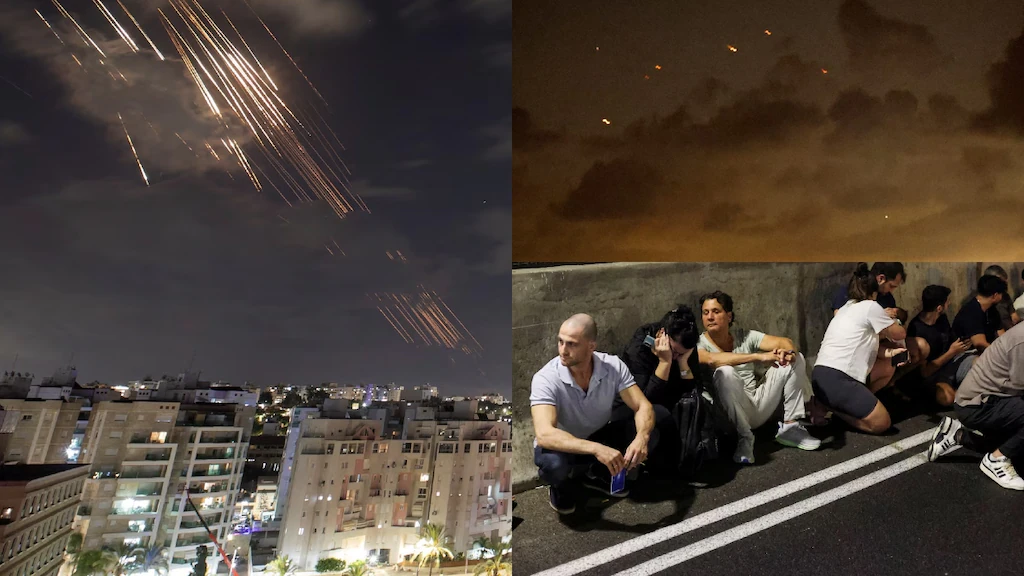
Tensions in the Middle East have dramatically escalated as Iran launched hundreds of rockets and missiles toward Israel, targeting major cities and strategic locations. The attack marks a significant increase in hostilities between the two nations, which have long been at odds over political, religious, and territorial issues. Both sides appear to be preparing for a prolonged military engagement, with the possibility of further escalation looming large.
The Scope of the Attack
The missile barrage, which Iran claims is a response to Israeli airstrikes and military operations in neighboring regions, has caused widespread concern among the international community. Iran’s missile attack targeted various regions across Israel, including both civilian and military sites. Israeli defense systems intercepted many of the rockets, but some managed to strike urban areas, causing casualties and property damage.
In response, Israel has ramped up its military efforts, launching counterstrikes on Iranian assets in Syria and Lebanon. These strikes are seen as an attempt to weaken Iran’s military infrastructure in the region and deter further aggression. The conflict is expected to intensify in the coming days as both sides show no signs of backing down.
U.S. Military Involvement
The United States, a longstanding ally of Israel, has responded swiftly to the crisis. The Biden administration announced the deployment of U.S. forces to the region to assist Israel’s defense systems and provide additional support. The deployment includes naval and air units positioned in strategic locations near Israel, with the intention of deterring further Iranian aggression.
U.S. officials have reiterated their commitment to Israel’s security and emphasized the need for de-escalation. However, the situation remains volatile, and further military intervention from both the U.S. and other global powers could exacerbate the conflict.
Global Repercussions
The missile attack has drawn widespread international condemnation. European and Middle Eastern leaders have called for restraint on both sides, urging diplomatic measures to prevent the conflict from spiraling out of control. The United Nations has also expressed concern about the humanitarian impact of the conflict, particularly in densely populated areas of Israel and Gaza.
The escalation comes at a time when the broader geopolitical landscape in the Middle East is already fragile. Ongoing conflicts in Syria, Yemen, and Lebanon have destabilized the region, and the Iranian-Israeli conflict adds another layer of complexity to these already entrenched issues.
Conclusion
As Iran and Israel inch closer to an all-out military confrontation, the stakes are high not only for the two nations involved but for the entire region. With the U.S. now deploying forces to assist Israel, the conflict has taken on an international dimension that could have far-reaching consequences. For now, the world watches as tensions continue to escalate, hoping for a diplomatic resolution before the violence spirals further.
image source – financialexpress.com


